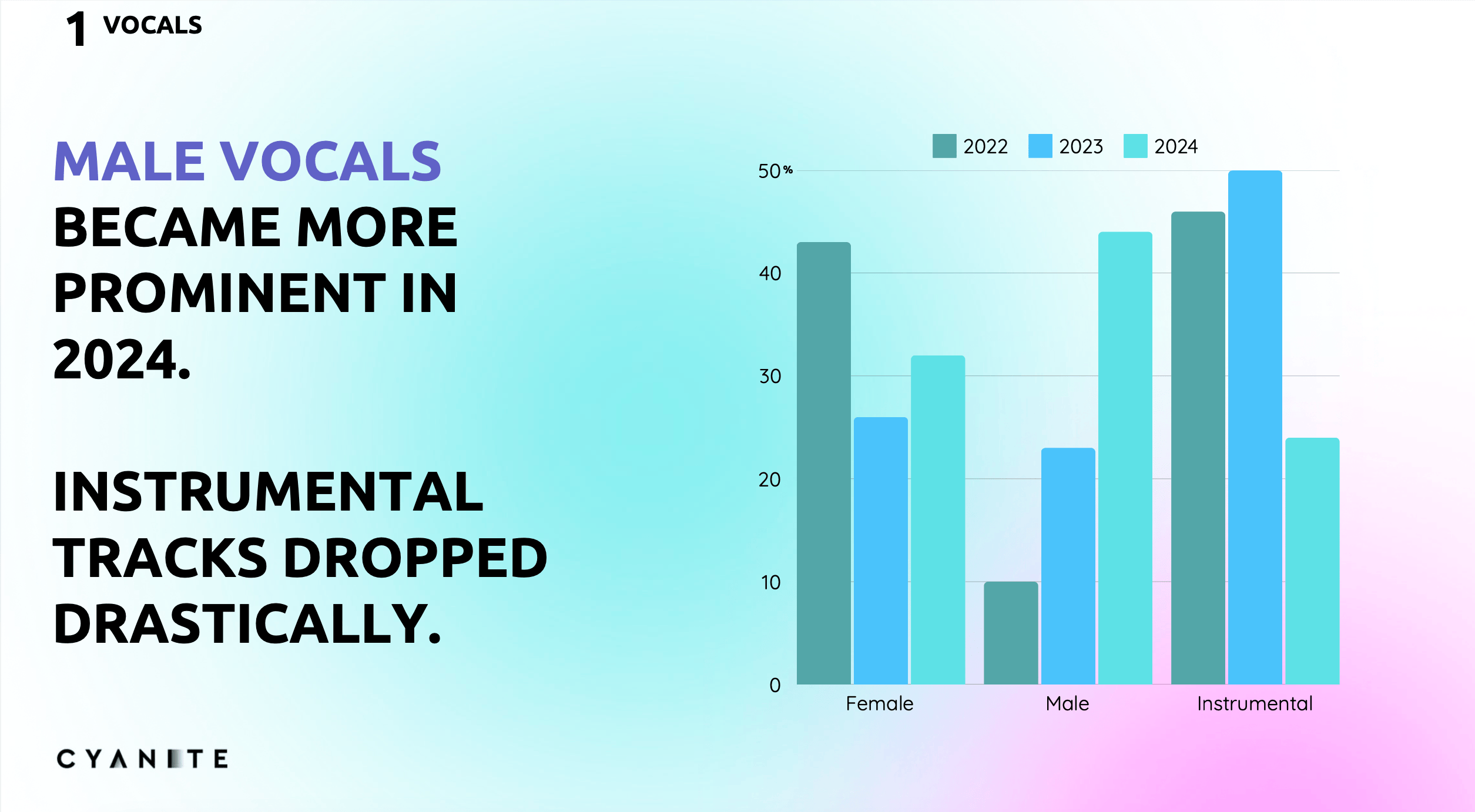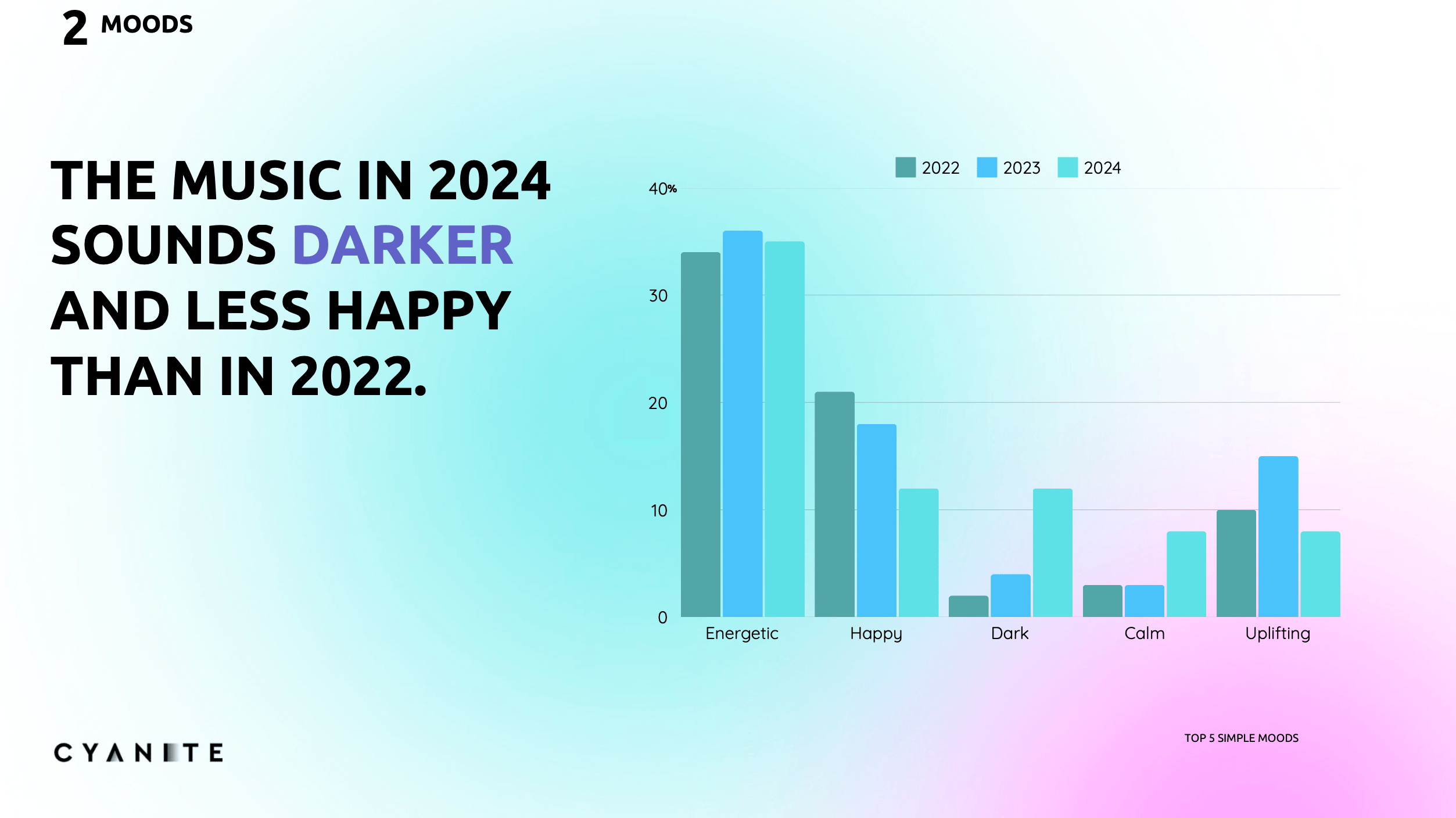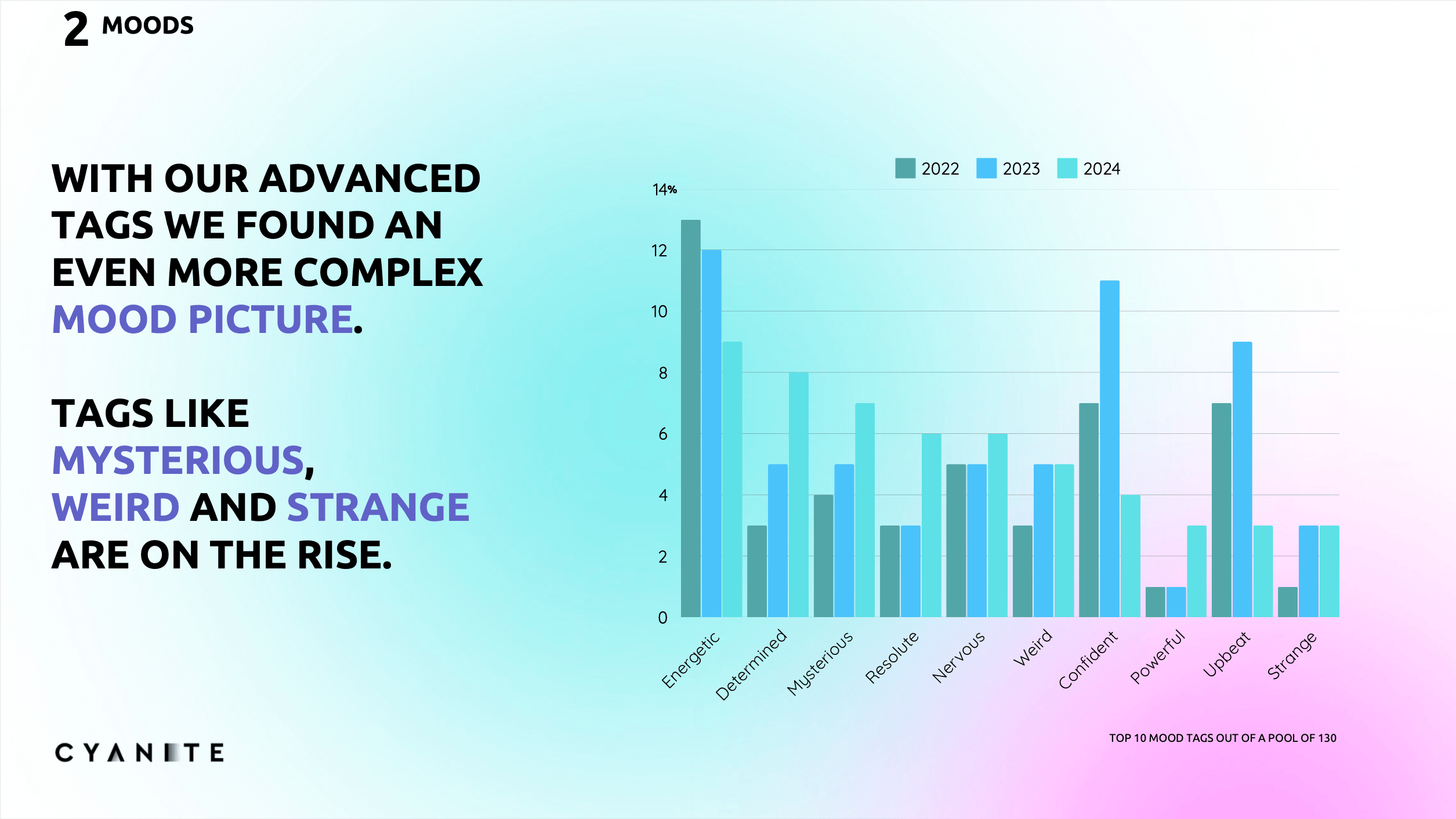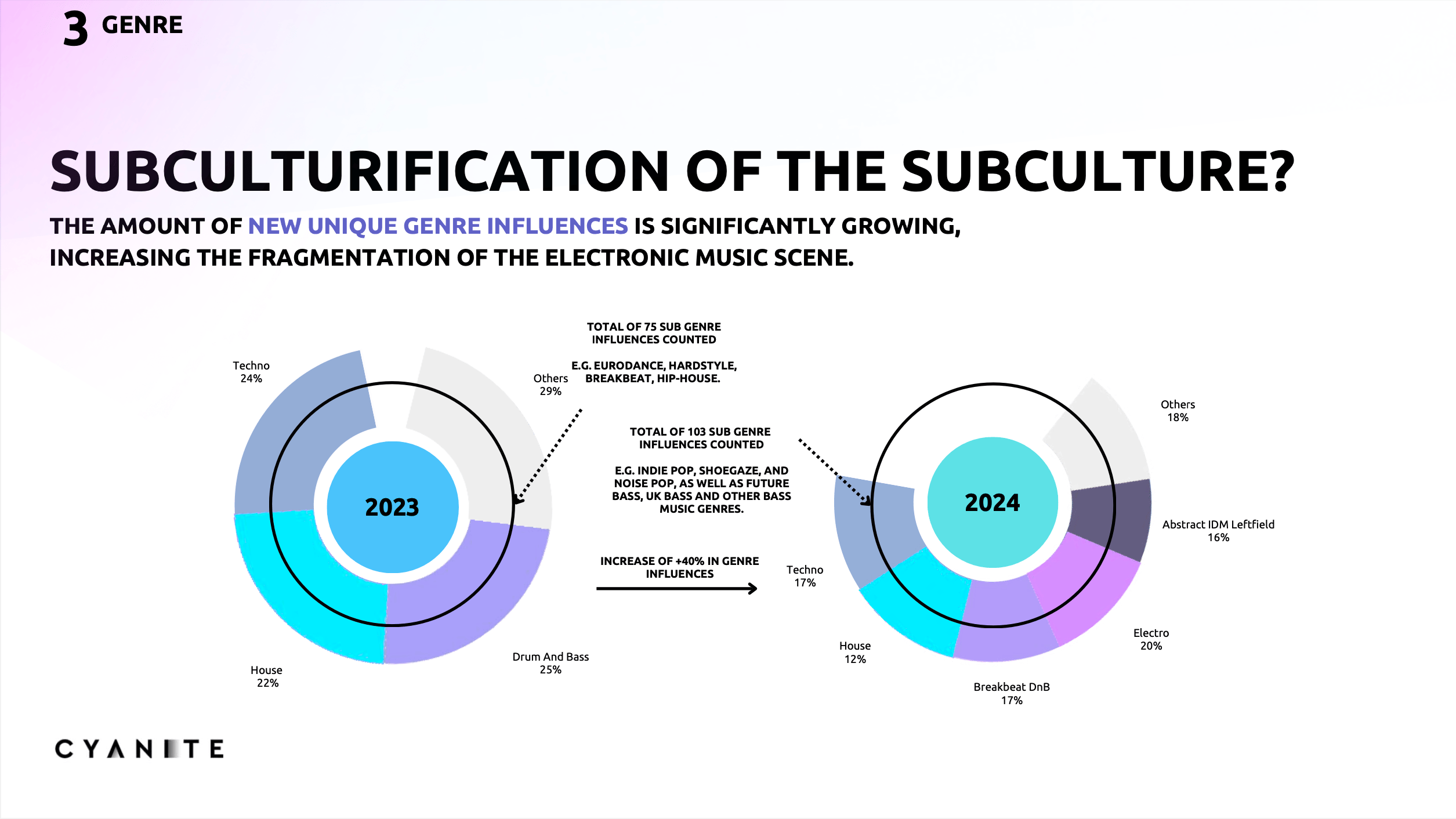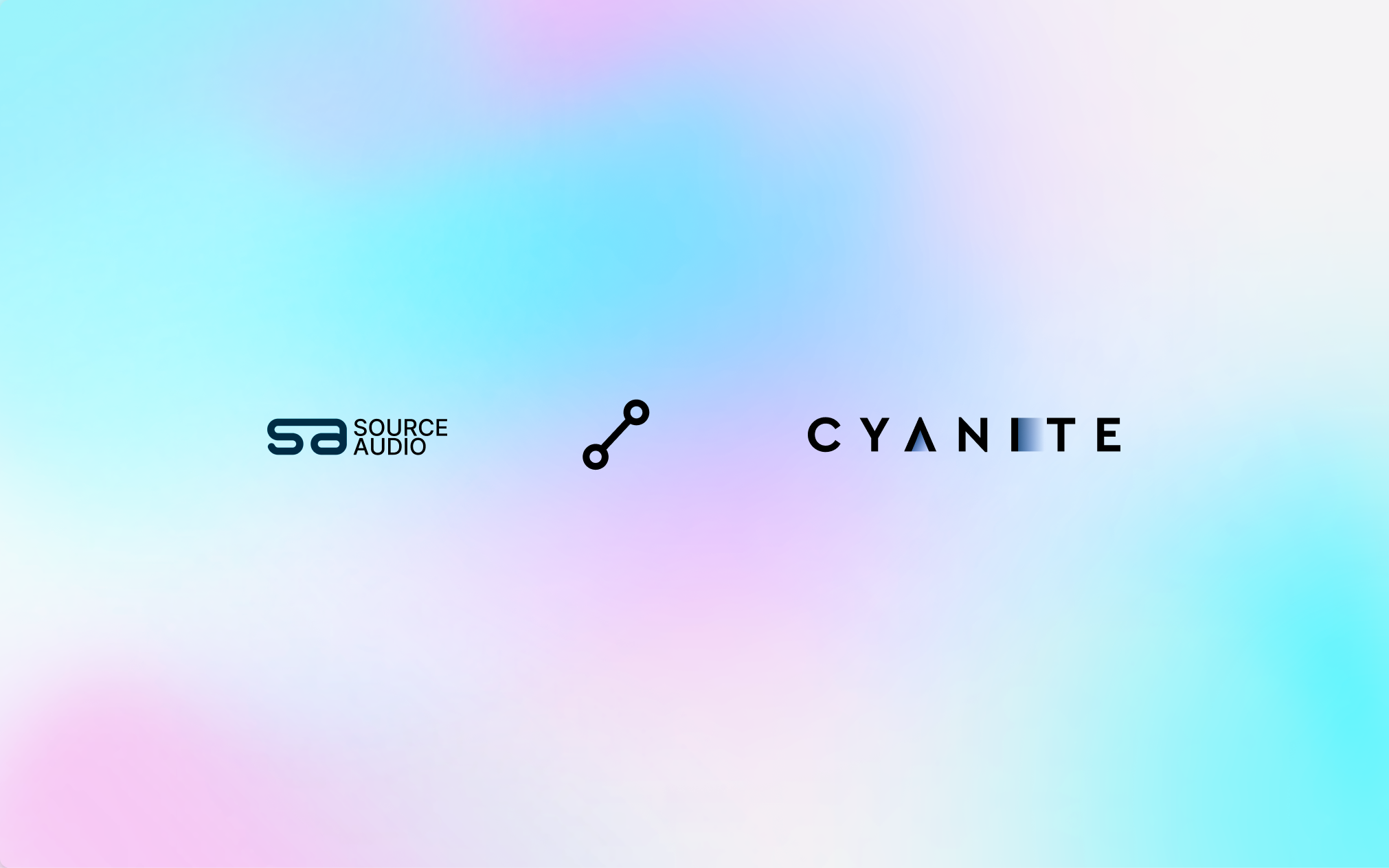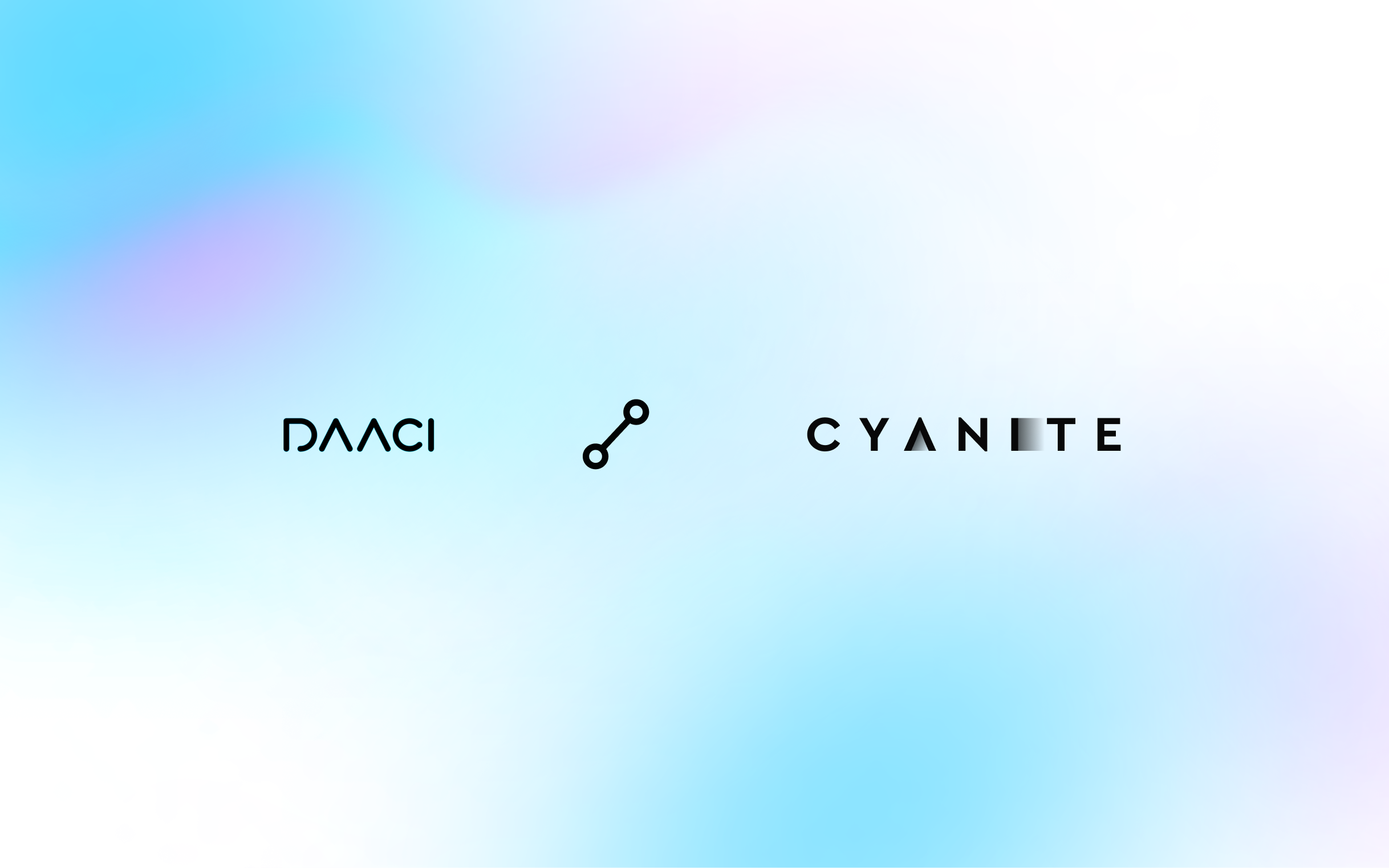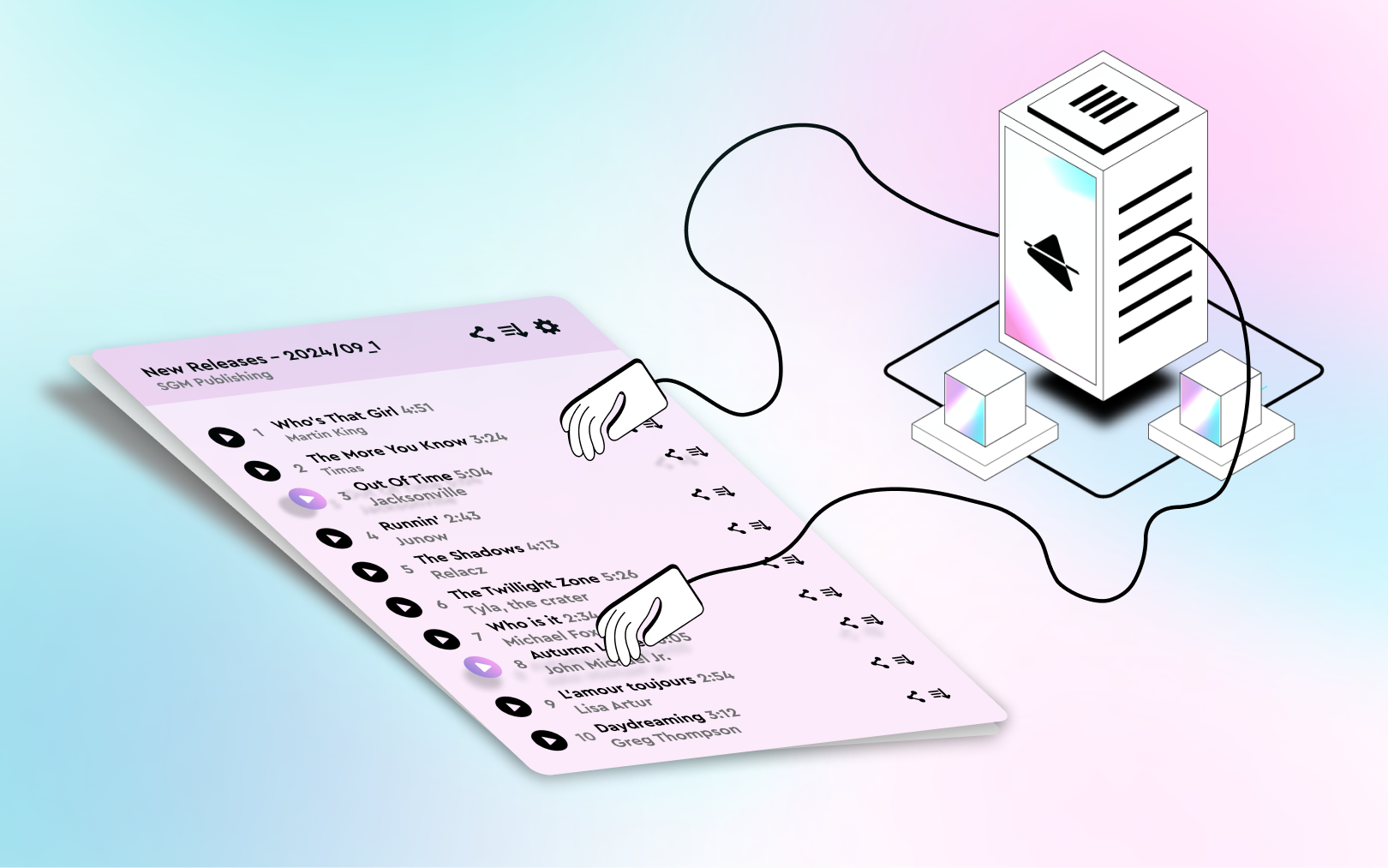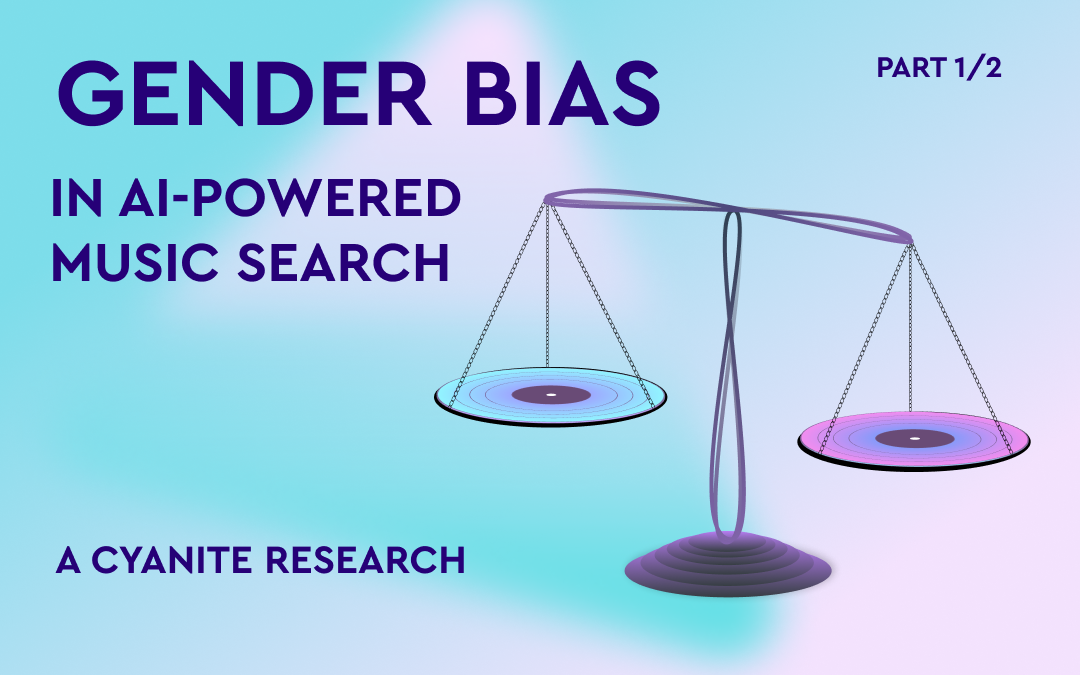
The Evolution of Electronic Music (2022-2024) – AI Data Analysis with RA’s Top Tracks

Vincent
Marketing Intern @ Cyanite
The landscape of electronic music is always changing due to artistic innovation, technological breakthroughs, and cultural trends. Resident Advisor’s Top Tracks of 2022, 2023, and 2024, were thoroughly evaluated by Cyanite’s AI, in an attempt to methodically examine these changes through a detailed AI Data Analysis.
Such analyses are valuable because they provide data-driven insights into listening behavior and musical trends, confirming or challenging existing assumptions. A good example for this is Cyanite’s Club Sounds Analysis, which examined trends in club music and uncovered clear patterns in tempo, energy, and emotional shifts over time.
One of the most prominent examples of these Analysis is Spotify Wrapped – which has shown how data-backed insights about user listening habits generate interest and engagement, offering artists, labels, and listeners a deeper understanding of musical developments. Cyanite’s AI-driven approach brings the same level of clarity to the ever-evolving electronic music landscape, making implicit trends measurable and comparable over time.
Most importantly, Cyanite’s AI delivers an objective perspective on music, which opens a lot of possibilities for profound analysis.
This data story finds notable changes in voice predominance, emotional tone, and genre diversity using Cyanite’s machine learning models that can differentiate between more than 2,500 genres and offer in-depth mood and compositional evaluations.
The findings indicate a progressive fragmentation of electronic music, an increasing integration of vocal elements, and a marked shift towards darker, more introspective moods.
1. Increasing Prominence of Vocals and the Decline of Instrumental Tracks
A notable trend observed in the analysis is the diminishing presence of instrumental compositions alongside an increase in male vocals.
Key Findings:
- Male vocals have become increasingly prominent, suggesting a shift towards vocal-driven electronic music.
- The overall balance between instrumental and vocal compositions has changed, with lyric-based narratives gaining a stronger foothold in the genre, while instrumental tracks have seen a significant decline between 2022 and 2024.
This trend suggests a convergence between electronic and vocal-centric musical styles, potentially influenced by developments in popular music consumption patterns and the growing demand for more emotionally direct musical expressions.
2. Mood Data Analysis: A Shift Toward Darker, More Introspective Compositions
Over the last three years, there has been a noticeable shift in the emotional terrain of electronic music. Cyanite’s AI-generated mood classifications show an increase in darker, more ambiguous emotional tones and a decline in upbeat and joyful musical elements.
Key Findings:
- Reduction in the prevalence of “happy” and “uplifting” moods.
- Growth in moods classified as “mysterious,” “weird,” and “strange”, reflecting an increasing tendency toward introspection and abstraction.
- Energetic and determined moods remain stable, indicating continuity in the genre’s dynamic core.
These findings align with broader sociocultural shifts, where uncertainty, complexity, and experimentation are becoming more prominent themes in contemporary artistic expression.
3. Genre Expansion and Increased Diversification
One of the most significant discoveries pertains to the increasing diversification of genre influences. Our AI, which is capable of differentiating between thousands of genres, has identified a 40% increase in distinct genre influences between 2023 and 2024.
This increased hybridization implies that the limits of electronic music are opening up more and more, allowing for the incorporation of non-traditional influences into the genre.
Key Findings:
- Techno and house music are losing ground to more experimental subgenres.
- Subgenres such as Breakbeat, IDM, and bass music have gained prominence.
- Genres previously outside the electronic domain—such as indie pop, shoegaze, and noise pop—are increasingly integrated into electronic compositions.
This genre fragmentation suggests that electronic music is moving toward greater stylistic pluralism, potentially leading to a subcultural diversification within the broader electronic music ecosystem.
Implications for the Future of Electronic Music
These findings have significant implications for artists, producers, and industry professionals seeking to understand and anticipate the trajectory of electronic music.
Key Takeaways:
- The integration of vocals into electronic music is increasing, signaling a shift away from purely instrumental compositions.
- Mood expressions are evolving, with a growing emphasis on introspection, complexity, and abstraction.
- Electronic music is becoming increasingly hybrid, incorporating elements from a diverse range of musical traditions.
- The rate of subgenre fragmentation is increasing, which raises concerns about how electronic music communities and their consumers will develop in the future.
Future Research Directions
Given these findings, further research could explore:
- The relationship between sociopolitical factors and musical mood shifts.
- The extent to which AI-generated insights can predict future genre evolution.
- How these trends correlate with streaming and consumption behaviors in digital music platforms.
Tagging Beyond Music Discovery – A Strategic Tool
Beyond pure music discovery, this data story highlights how the importance of tagging and metadata analysis is expanding into strategic decision-making. As previously discussed in the Synchblog, structured tagging not only helps with search and recommendation but also shapes business strategies.
For example, one German music publisher used Cyanite’s insights to identify a critical gap in their catalog: While epic and cinematic music remains highly relevant for sync licensing, they had almost none of it in their repertoire. By shifting from gut feeling to data-driven content acquisition, they were able to adjust their catalog strategy accordingly.
AI Data Analysis for labels, publishers, and music libraries:
Data-driven insights generally provide a competitive advantage by optimizing key business areas:
- Strategic Content Acquisition: Identify gaps in the catalog (e.g., missing genres or moods) and align acquisitions with data-driven demand trends.
- Licensing & Sync Optimization: Prioritize metadata tagging to improve discoverability and match content to industry needs (e.g., film, gaming, advertising).
- Market Positioning & Trend Monitoring: Track shifts in listener preferences, adjust marketing strategies, and ensure the catalog aligns with emerging industry trends.
- A&R & Artist Development: Use genre and mood insights to guide signings and support artists in exploring high-demand styles.
These insights help catalog owners make informed, strategic decisions, replacing gut feeling with actionable market data.
Conclusion
Cyanite’s AI data analysis of Resident Advisor’s Top Tracks (2022–2024) provides compelling evidence of a rapidly evolving electronic music landscape. With vocals becoming increasingly integral, emotional expressions growing darker, and genre boundaries dissolving, the industry is entering a phase of heightened complexity and innovation.
For artists, labels, and curators, understanding these shifts is crucial for adapting to the changing demands of audiences and staying at the forefront of musical development.
By leveraging advanced AI-driven music analysis, we can gain deeper insights into the intricate mechanisms shaping the future of sound.

